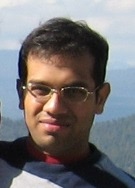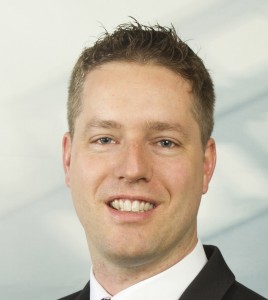Edinburgh, UK, June 2014, Co-located with
PLDI 2014
Back to main page
Schedule
09:00-09:05
|
Welcome & Introduction
|
| 09:05-10:00 |
Invited Talk by Mayur Naik |
| 10:00-10:30 |
Break |
| 10:30-12:00 |
Paper Presentations - Session 1
|
| 12:00-13:30 |
Lunch |
| 13:30-14:30 |
Invited Talk by Eric Bodden
|
| 14:30-15:30 |
Paper Presentations - Session 2
|
| 15:30-16:00 |
Break |
| 16:00-16:30 |
Small-group discussions |
| 16:30-17:00 |
Discussion summaries and closing |
Invited talk by Mayur Naik - 9:05-10:00
Large-Scale Configurable Static Analysis
demonstrated the ability to prove non-trivial properties of realworld
programs. This ability in turn has applications to emerging
software challenges in security, software-defined networking,
cyber-physical systems, and beyond. The diversity of such applications
necessitates adapting the underlying program analyses to
client needs, in aspects of scalability, applicability, and accuracy.
Today's program analyses, however, do not provide useful tuning
knobs. This talk presents a general computer-assisted approach to
effectively adapt program analyses to diverse clients.
The approach has three key ingredients. First, it poses optimization
problems that expose a large set of choices to adapt various
aspects of an analysis, such as its cost, the accuracy of its result,
and the assumptions it makes about missing information. Second, it
solves those optimization problems by new search algorithms that
efficiently navigate large search spaces, reason in the presence of
noise, interact with users, and learn across programs. Third, it comprises
a program analysis platform that facilitates users to specify
and compose analyses, enables search algorithms to reason about
analyses, and allows using large-scale computing resources to parallelize
analyses.
Mayur Naik is an assistant professor in the School
of Computer Science at Georgia Tech. His research interests lie at
the intersection of the areas of programming languages and software
engineering, with an emphasis on improving programmer
productivity and software quality on modern computing platforms
such as parallel, mobile, and cloud computing. He is the author
of Chord, a widely-used program analysis platform for Java. He
has also contributed to various program analysis-based systems, including
Dynodroid (an input generation system for Android apps),
CloneCloud (a mobile-cloud computing system for Android apps),
CBI (a framework for remote monitoring and statistical debugging
of C programs), CalFuzzer (a tool for testing multi-threaded Java
programs), and SLAM (a model checker for C programs). He is the
recipient of a PLDI distinguished paper award, an NSF CAREER
award, a Google faculty research award, an ACM SIGSOFT distinguished
paper award, and a Microsoft graduate fellowship. He
holds a Ph.D. in Computer Science from Stanford University and
was a research scientist at Intel Labs Berkeley.
Session 1 - 10:30-12:00
A Software Product Line for Static Analyses - The OPAL Framework(Michael Eichberg and Ben Hermann)
Explicit and Symbolic Techniques for Fast and Scalable Points-to Analysis(Edgar Pek and Madhusudan Parthasarathy)
Android Taint Flow Analysis for App Sets (William Klieber, Lori Flynn, Amar Bhosale, Limin Jia and Lujo Bauer)
Invited talk by Eric Bodden - 13:30-14:30
Some program-analysis frameworks have been around for a long time, with Soot alone having been around for more than one decade. Over the years, demand on such frameworks have changed drastically, stressing the flexibility of frameworks such as Soot to their limit. What were those demands back then and how did they impact the design of Soot? What are the current demands and what architectural and methodological changes do they demand? What has the Soot community done to address these challenges? What remains to be solved? This talk means to address these questions to open the debate about the future evolution of Soot and other static-analysis frameworks.
Eric Bodden is a professor at Technische Universität Darmstadt and Fraunhofer SIT where he leads the Secure Software Engineering Group. He has been an active contributor to and maintainer of Soot for many years. His research centers around various topics in static analysis, dynamic analysis, and software engineering with a growing focus on security topics.
Session 2 - 14:30-15:30
Dynamic Slicing with Soot (Arian Treffer and Matthias Uflacker)
TS4J: A Fluent Interface for Defining and Computing Typestate Analyses (Eric Bodden)
Proposed groups for small-group discussions - 16:00-16:30
In case you would like to add a topic, please
let us know!
 Large-Scale Configurable Static Analysis
Large-Scale Configurable Static Analysis How to build the perfect swiss-army knife, and keep it sharp? - Challenges for the Soot program-analysis framework in the light of past, current and future demands
How to build the perfect swiss-army knife, and keep it sharp? - Challenges for the Soot program-analysis framework in the light of past, current and future demands